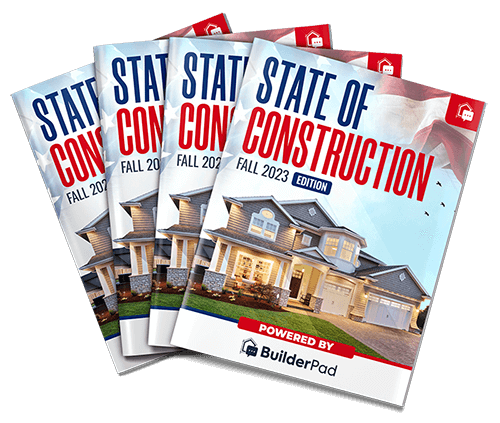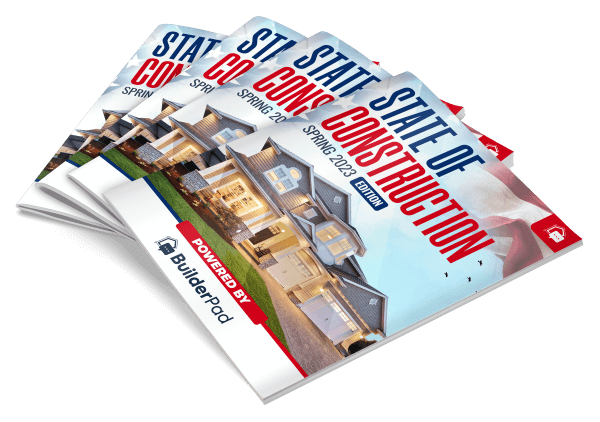For construction business owners, building efficient and effective residential construction schedules is pivotal to success.
It’s not just about managing time; it’s about optimizing resources, foreseeing challenges, and ensuring customer satisfaction.
In the rapidly evolving construction industry, staying ahead with advanced tools like Builderpad, a leading construction management app, is essential.
The Importance of Efficient Construction Scheduling
Efficient construction scheduling is crucial for several reasons:
- Cost management: Effective scheduling with Builderpad helps control project costs, as delays often lead to cost overruns due to extended labor hours and increased material costs.
- Resource optimization: Builderpad enables efficient scheduling, ensuring optimal use of labor, materials, and equipment, reducing idle time and resource wastage.
- Quality assurance: A well-planned schedule on Builderpad allows for sufficient time to complete each task properly, ensuring high-quality construction outcomes.
- Client satisfaction: Meeting project timelines is critical for client satisfaction. Builderpad helps in adhering to schedules, which is key to maintaining client trust and business reputation.
- Risk mitigation: Proper scheduling with Builderpad aids in identifying potential risks early and allows for proactive measures to mitigate them. It also helps navigate seasonal constraints and delays.
- Compliance and safety: Adhering to a schedule through Builderpad ensures that compliance standards are met and safety protocols are followed, reducing the likelihood of accidents on site.
Understanding Residential Construction Scheduling

A residential construction schedule is more than a timeline. It’s a comprehensive plan that outlines each step in the building process, from groundbreaking to final inspection.
It involves coordinating various trades, managing material deliveries, and meeting compliance standards, all while adhering to a predetermined timeline.
Key Steps in Building a Construction Schedule
- Project Scope Definition: Clearly define the scope of the project with Builderpad. Understand the client’s requirements and the architectural design to lay a solid foundation for the schedule.
- Task Sequencing: Utilize Builderpad to identify and sequence tasks logically. For instance, you can’t start on interior finishes before completing the framing.
- Time Estimation: Assign realistic time frames for each task using Builderpad, considering factors like workforce availability and potential delays.
- Resource Allocation: Allocate resources, including labor, materials, and equipment, efficiently with Builderpad to avoid bottlenecks.
- Regular Monitoring and Adjustments: Construction schedules on Builderpad should be dynamic. Regular monitoring and adjustments are necessary to account for unforeseen changes or delays.
Leveraging Builderpad for Construction Scheduling
In the dynamic and complex world of construction, traditional scheduling methods like templates and spreadsheets are often inadequate. They lack real-time updating capabilities, centralized communication, and the flexibility needed to adapt to changing project conditions.
This is where a specialized software like Builderpad becomes invaluable.
Builderpad offers a comprehensive, integrated solution that addresses the limitations of traditional methods, providing real-time data, collaborative tools, and mobile accessibility, which are essential for efficient project management in today’s fast-paced construction environment.
Integrated Task Management
Streamlining the organization of tasks is vital for project success.
Builderpad’s intuitive interface allows for easy task creation and sequencing, enabling you to map out the entire project lifecycle and break down complex projects into manageable tasks.
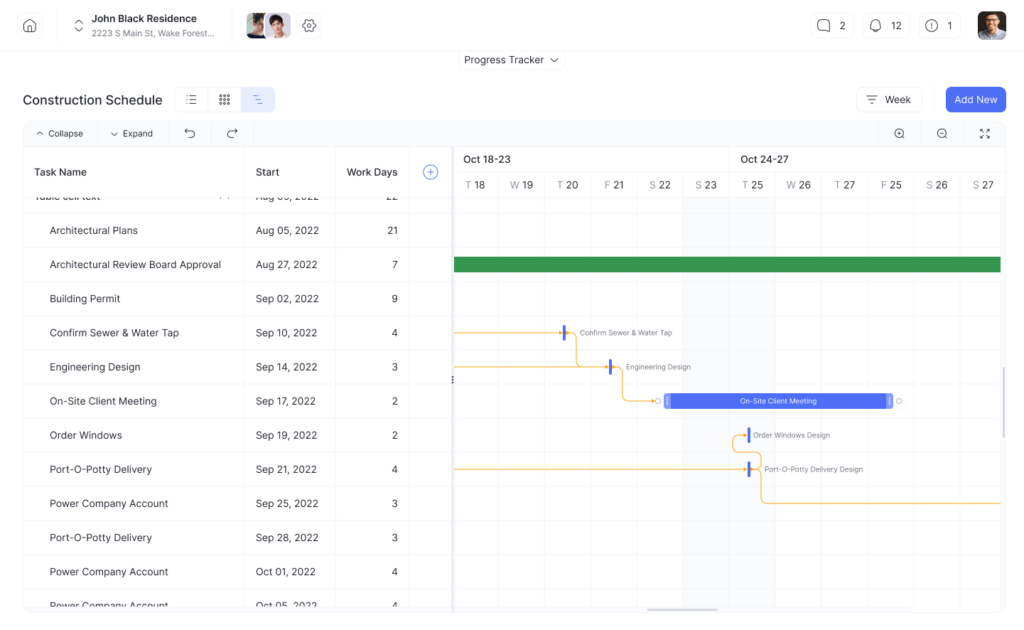
Real-Time Updates and Communication
Effective communication is key in construction projects.
The platform enables real-time updates, ensuring that any changes in the schedule are instantly communicated to all stakeholders, thus minimizing misunderstandings and delays caused by miscommunication.
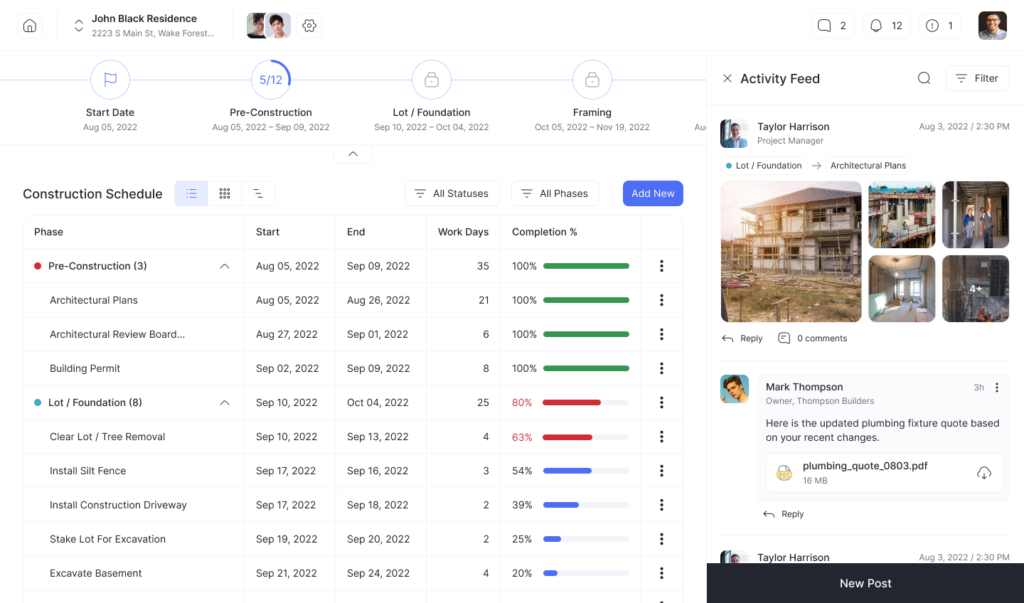
Resource Management Tools
Efficient resource management is crucial to prevent project delays and cost overruns.
With Builderpad, you can track resource allocation efficiently, and its inventory management feature ensures that materials are ordered and delivered on time, reducing idle periods on site.
Document Management
Keeping project documents organized and accessible is essential for smooth operation.
Builderpad provides a centralized platform for all project-related documents, ensuring that everyone from architects to subcontractors can access the latest plans, permits, and compliance documents, keeping the project on track.
Mobile Accessibility
Accessibility in the field is a game-changer for construction management.
Given the on-the-go nature of construction work, Builderpad’s mobile app ensures that you can update and view the schedule anytime, anywhere.
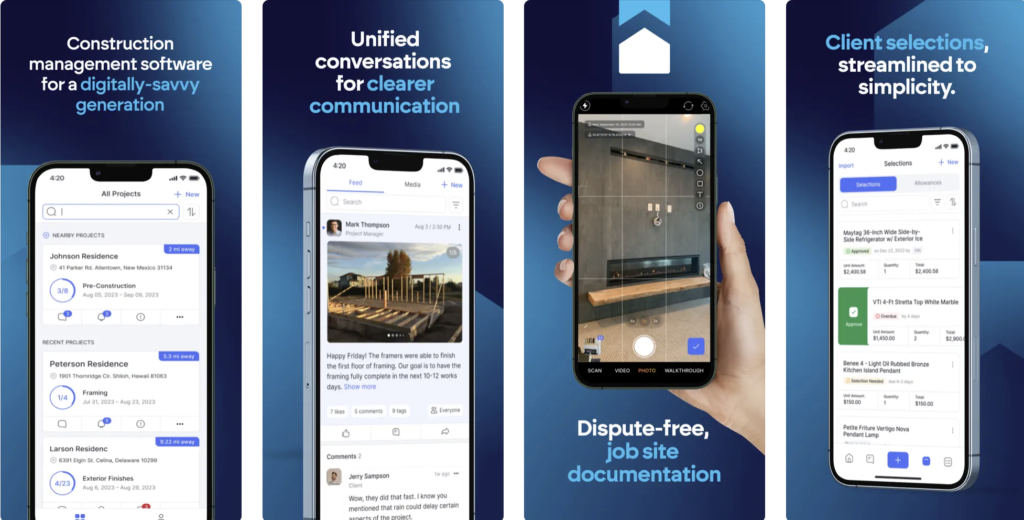
Here are 3 key takeaways from the article on efficient residential construction scheduling:
- Effective scheduling is critical for construction businesses to optimize costs, resources, quality, safety, and customer satisfaction. A schedule goes beyond just a timeline, requiring careful task sequencing, time estimations, and resource allocation.
- Builderpad is an advanced construction management app that brings new efficiencies to scheduling. Key features include integrated task management, real-time updates, resource tracking, document management, analytics, and mobility.
- Builderpad enables creating comprehensive schedules mapping all project tasks. Real-time communication ensures schedule changes are instantly conveyed to stakeholders. Overall, Builderpad streamlines scheduling complexity for construction firms.
Conclusion
In conclusion, while constructing a residential building schedule requires meticulous planning and execution, tools like Builderpad can significantly streamline the process. By embracing technology, construction business owners can ensure more efficient project management, timely completion, and ultimately, greater client satisfaction.


